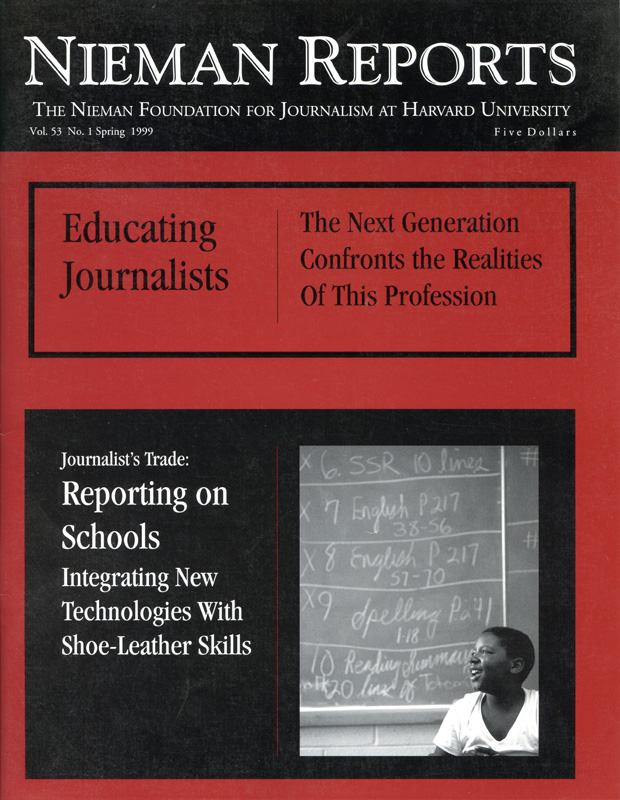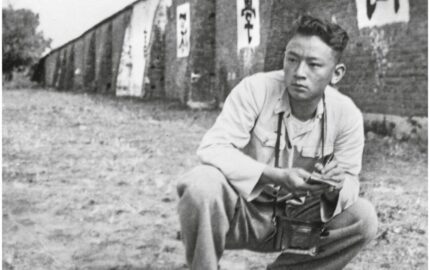As foreign reporting struggles to find its foothold in the news that Americans watch, listen to and read, reporters write books about human tragedies they observe. They hope someone will pay attention. We open this section by examining some current trends in foreign news reporting.
Deborah Amos, who for many years was a foreign correspondent with National Public Radio, reviews “Compassion Fatigue: How the Media Sell Disease, Famine, War and Death,” by Susan D. Moeller. Amos concludes that Moeller’s indictment of the media as “dulling the audience’s natural reaction to tragedy” falls a bit shy of the mark in explaining why fewer and fewer foreign stories receive prominent coverage by American media.
Murray Seeger, a former foreign correspondent, reviews three books about foreign conflicts—Bosnia, Chechnya and Rwanda—written by journalists. In his review, he explores the difficult circumstances foreign correspondents confront in the post-Cold War era.
Roy Gutman, a Newsday correspondent whose reporting disclosed systematic killing at detention camps in northern Bosnia, previews the summer release of the “Crimes of War Project,” an effort to educate news media about humanitarian law. Only by knowing what constitutes a “war crime,” he argues, can journalists accurately report on atrocities they see in covering regional conflicts.
Orville Schell, Dean of Berkeley’s Graduate School of Journalism and a long-time foreign correspondent, looks at business reporting as a new force in foreign news coverage during a Nieman Seminar.
Athan G. Theoharis, an expert on secrecy, writes about the government’s oversight of “secrets.” He explains its impact on what journalists (and the public) ought to be able to know by focusing on Senator Daniel Patrick Moynihan’s book as well as on a collection of essays which he edited.
Joseph Williams reviews a biography of Ted Poston, The New York Post’s first black reporter. As Williams writes, Poston’s “best work transcended race, but was inextricably bound and ultimately limited by it.”
Ray Scherer, who reported for NBC News from the White House for nearly two decades (Truman to Johnson), reviews the memoirs of Richard S. Salant, who was President of CBS News during some of those years. “Salant is gone and so, increasingly, is the straightforward, no-nonsense style of reporting news on the air which he exemplified,” Scherer writes.
Tom Witosky, sports-projects reporter for The Des Moines Register, reviews a memoir by Jack Whitaker, a man whose broadcasting career spanned more than 40 years. Golf is his passion, but as Witosky observes the book could be “an interesting read” for non-golfers, as well.
Deborah Amos, who for many years was a foreign correspondent with National Public Radio, reviews “Compassion Fatigue: How the Media Sell Disease, Famine, War and Death,” by Susan D. Moeller. Amos concludes that Moeller’s indictment of the media as “dulling the audience’s natural reaction to tragedy” falls a bit shy of the mark in explaining why fewer and fewer foreign stories receive prominent coverage by American media.
Murray Seeger, a former foreign correspondent, reviews three books about foreign conflicts—Bosnia, Chechnya and Rwanda—written by journalists. In his review, he explores the difficult circumstances foreign correspondents confront in the post-Cold War era.
Roy Gutman, a Newsday correspondent whose reporting disclosed systematic killing at detention camps in northern Bosnia, previews the summer release of the “Crimes of War Project,” an effort to educate news media about humanitarian law. Only by knowing what constitutes a “war crime,” he argues, can journalists accurately report on atrocities they see in covering regional conflicts.
Orville Schell, Dean of Berkeley’s Graduate School of Journalism and a long-time foreign correspondent, looks at business reporting as a new force in foreign news coverage during a Nieman Seminar.
Athan G. Theoharis, an expert on secrecy, writes about the government’s oversight of “secrets.” He explains its impact on what journalists (and the public) ought to be able to know by focusing on Senator Daniel Patrick Moynihan’s book as well as on a collection of essays which he edited.
Joseph Williams reviews a biography of Ted Poston, The New York Post’s first black reporter. As Williams writes, Poston’s “best work transcended race, but was inextricably bound and ultimately limited by it.”
Ray Scherer, who reported for NBC News from the White House for nearly two decades (Truman to Johnson), reviews the memoirs of Richard S. Salant, who was President of CBS News during some of those years. “Salant is gone and so, increasingly, is the straightforward, no-nonsense style of reporting news on the air which he exemplified,” Scherer writes.
Tom Witosky, sports-projects reporter for The Des Moines Register, reviews a memoir by Jack Whitaker, a man whose broadcasting career spanned more than 40 years. Golf is his passion, but as Witosky observes the book could be “an interesting read” for non-golfers, as well.



